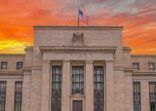Like most markets in Asia, investors in Hong Kong have favoured fixed income products over equity and mixed-asset funds this year.
Net inflows toward fixed income funds sold in Hong Kong during the first half of this year totalled $16.5bn, which compares to net redemptions from equity funds ($3.5bn) and balanced funds ($3.9bn), according to the latest data from Hong Kong Investment Funds Association (HKIFA).
Net sales/(redemptions) in Hong Kong ($bn)
| 1H 2019 | Full-year 2018 | |
| Equity sub-total |
(3.5) |
(2.41) |
| Mixed asset sub-total |
(3.96) |
6.97 |
| Bond sub-total |
16.59 |
(5.80) |
Source: HKIFA
Within the equity fund category, all sub-asset classes had net outflows. Sector or theme funds had the highest net redemptions of $857m, accounting for nearly 25% of the total outflows. This was a huge turnaround from last year, where the product category had the highest net inflows of $667m, in spite of net redemptions in the overall equity fund market.
Net inflows/(redemptions) in equity funds sold in Hong Kong ($m)
| Equity funds | 1H 2019 | Full-year 2018 |
| Asia (ex-Japan) | (283.85) | (784.80) |
| Asia including Japan | (27.87) | (38.34) |
| Greater China region | (123.86) | (659.54) |
| China | (429.19) | (766.98) |
| Japan | (20.79) | (34.77) |
| Hong Kong | (197.14) | 60.89 |
| Asian single market (non-Japan/HK) | (121.15) | (258.92) |
| International | (503.98) | 153.58 |
| Europe (ex-Eastern Europe) | (387.97) | (667.76) |
| Europe including Europe | (30.38) | (83.34) |
| European single market | (11.77) | (20.49) |
| North America | (343.11) | 135.86 |
| Global emerging markets | (113.20) | 77.46 |
| Eastern Europe emerging markets | (21.40) | (100.59) |
| Latin America emerging markets | (26.84) | (74.82) |
| Sector funds | (856.69) | 667.65 |
| REITs-related funds | (0.77) | (13.78) |
Source: HKIFA
The theme today may not be the trend tomorrow
Wing Chan, Hong Kong-based director of manager research at Morningstar, believes that there are a number of factors behind the outflows from themed funds.
“Traditionally, sector or thematic funds tend to have a higher turnover,” he told FSA.
Chan cannot pinpoint which particular themes had huge outflows, but he explained that a theme in which investors have believed to provide long-term opportunities previously may not provide the same opportunities tomorrow.
“There were thematic products launched around 10 years ago that focused on a particular sector or sub-sector. While they may seem to have brought in a lot of investors at the time, they may not be the long-term trend now as they had originally been pitched.
“When a trend has gone out of relevance, investors switched out of them, which explains a lot of the turnover that we have seen.”
Chan added that the thematic products that have been launched in recent years are different from those that were launched earlier. For example, fund managers previously tended to launch consumer- or natural resources-focused products. Today, themes usually revolve around the sub-sectors of technology, including artificial intelligence and robotics.
Indeed, a number of fund managers have launched several thematic products this year, often focusing in sub-sectors in technology, healthcare and ESG. They include Janus Henderson, Nikko Asset Management, UOB Asset Management, Allianz Global Investors, Blackrock, Amundi Asset Management and Value Partners.
Chan believes that the recent fund launches have been in response to investor demand.
“Managers have continued to launch these products because of potential interest from advisers or wealth managers. Some of the thematic products that were recently launched definitely have nice stories around them.”
He noted, however, that thematic products are usually more volatile than other equity funds.
“Since they focus on a particular sector or sub-sector, they tend to be concentrated, which makes them more volatile than other funds. When you combine that volatility with a higher turnover, that tends to weigh on investor returns.
“That is one of the reasons why, as a firm, we are typically not the biggest fans of thematic products, although there are a few exemptions,” he said, but did not elaborate.
A number of wealth managers, including Oreana Financial Services, UOB Private Bank and DBS Private Bank are also not keen on investing in thematic products, particularly those that are narrowly focused.
Fixed income dominate
Turning to the net outflows from the equity fund category as a whole, Chan said that investors have been concerned about valuations, especially in developed markets.
“There are also concerns over China’s growth this year, especially with the trade war and deleveraging in China. So those concerns tend to have a negative impact on equity markets.
“Meanwhile, fixed income had huge net inflows this year as investors believe that the Fed’s pivot in the interest rate policy should benefit the asset class, especially for US-dollar denominated Asian bonds.”
During the first half this year, Asia bond funds had net inflows of $4.5bn, which compares to net outflows of $2.9bn last year, according to HKIFA data. However, the most popular sub-asset class this year is global bond funds, which had net inflows of $10.1bn.
Net inflows/(redemptions) in fixed income funds sold in Hong Kong ($m)
| Bond funds |
1H 2019 |
Full-year 2018 |
| Global |
10,130.63 |
(823.55) |
| US |
182.40 |
533.99 |
| Europe |
446.85 |
113.98 |
| Asia |
4,533.02 |
(2,941.36) |
| Emerging markets |
407.14 |
(533.83) |
| High yield |
892.96 |
(2,146.42) |
Source: HKIFA
In total, fixed income products accounted for nearly 70% of the total gross sales of mutual funds sold in Hong Kong.


















